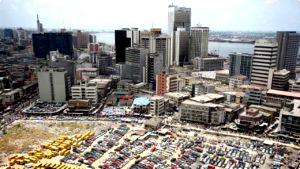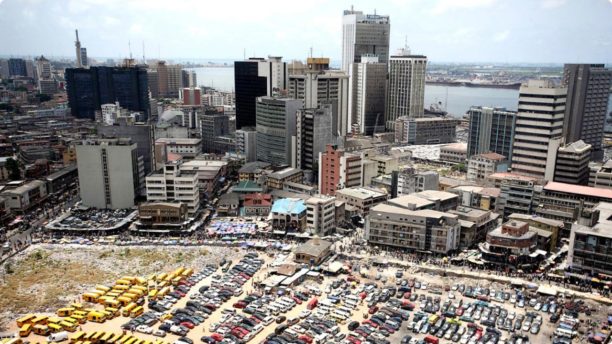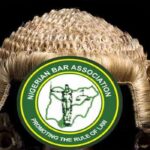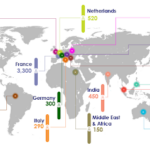

By Chris Ekpenyong
Like a patient that has undergone numerous surgeries and rehabilitative procedures under the supervision of surgeons and medical consultants for years, yet with no recovery in sight but a rather deteriorating condition laced with permanent bodily scars as evidence, the economy of Nigeria has always been under the knife.
It has been a history of serial diagnosis, proffered solutions and futile actions undertaken by successive administrations.
Unfortunately, healing and recovery remain elusive.
Economists, geologists and surveyors have long agreed that under the Nigerian soil are wealth and riches untold.
But the majority of Nigerians are wallowing in poverty. The Nigerian Extractive Industries and Transparency Initiative, NEITI, report suggests that there are about 40 different kinds of solid minerals and precious metals buried in Nigerian soil waiting to be exploited.
The commercial value of Nigeria’s solid minerals has been estimated to run into hundreds of trillions of dollars, with 70 per cent of these buried in the bowels of Northern Nigeria.
The failure of Nigeria, since independence in 1960, to put in place a structure that will make the benefits of the exploitation of solid minerals available to all Nigerians has been the bane of the nation.
At the moment, the mining of minerals in Nigeria accounts for only 0.3 per cent of its GDP, due to the influence of oil resources.
The domestic mining industry is underdeveloped, leading to Nigeria having to import commodities it could produce domestically, such as salt or iron sheets and billets.
According to NEITI’s audit findings, solid mineral deposits are scattered all over Nigeria, with more deposits in certain areas than others.
40 million tones of talc deposits have been identified in Niger, Osun, Kogi, Ogun and Kaduna states.
There are huge deposits of coal ranging from bituminous to lignite in the Anambra Basin of South-Eastern Nigeria.
There are lead-zinc ores within the Asaba Area of the Niger Delta, while tin and lead are found around Oyo and Igbeti, with as much as over a billion tonnes of gypsum spread around Sokoto, Niger, Ondo and Ekiti states.
Nigeria’s potentially most beneficial solid minerals are spread around the nation but most of them are in the North.
Limestone deposits occur in Cross River, Ogun, Benue, Gombe, Ebonyi, Sokoto, Edo and Kogi states, coal in Enugu, Imo, Kogi, Delta, Plateau, Anambra, Abia, Benue, Edo, Ondo, Bauchi, Adamawa and Kwara states; silver is found in Kano, manganese in the Northern states of Kebbi, Katsina and Zamfara
Fluorite is found in Taraba State with gold in Niger, Kebbi, Kaduna, Kogi, Kwara and Zamfara and a little in Osun.
Nasarawa State in the North has been appropriately tagged as the home of solid minerals.
The state is one of the most naturally endowed in Nigeria in terms of the availability of economically and commercially viable natural resources.
They include clay, columbite, limestone, sodium chloride, silica sand, granites, gemstone, quartz, coking coal, marble, and iron ore. Bauchi is another richly endowed state in the North with metal ores, non-metallic ores and gemstones.
Other untapped mineral resources in Bauchi include kaolin,tin, quartz,iron ore, gypsum, copper ore, limestone, beryl, columbite, aquamarine, topaz, marble, and others. Yet with these potential money-spinning resources, states in the country are starved of funds and are currently facing a cash crunch. Nigeria as a nation is passing through economic hardship as a result of fluctuation in oil prices.
The low activity in the solid mineral sector is not yielding the desired financial benefit as there are no records of payment of taxes and royalties to the government.
Nigeria is losing lots of resources from untapped mineral deposits as well as from the little that is being mined mostly by illegal miners who smuggle the products out of the country.
According to NEITI audit report on solid mineral operations in Nigeria, there are six buying centres, nine dredging companies, eleven exporters of solid minerals, fourteen medium-scale mining companies, thirty-five commercial quarries, fifty-four construction quarries, eight quarries for manufacturing giving a total of one hundred and thirty-seven activities in the solid mineral sector of the Nigerian economy.
Organized mining began in 1903 when the Mineral Survey of the Northern Protectorates was created by the British colonial government. A year later, the Mineral Survey of the Southern Protectorates was founded. By the 1940s, Nigeria was a major producer of tin, columbite, and coal. The discovery of oil in 1956 hurt the mineral extraction industries, as government and industry both began to focus on this new resource. The Nigerian Civil War in the late 1960s led many expatriate mining experts to leave the country.
In economic development, mineral resources are the foundation upon which an industrialised economy is built, and industrialisation is essential if Nigeria is to reduce over-dependence on the oil industry – an industry which, despite the revenue it generates, employs just six per cent of the Nigerian labour force.
A bill to establish a financial institution known as the Solid Minerals Development Bank had passed second reading at the senate.
The bill, sponsored by Yakubu Oseni, seeks to accelerate sustainable socio-economic development.
It also seeks to boost the solid minerals sector and the quality of life of the people by providing financial and non-financial investments in the sector.
This will be a huge contribution to the mining industry in Nigeria.
The Incoming President, Atiku Abubakar, will do more for this industry. He has promised to restructure economic activities to allow states to harness the various mineral resources in their domain. I believe this is the only way to make states begin to look inward to revitalise the mining industry and diversify the economy for the general good.
Like the Bible said the resources of the earth are for all and they are beneath the ground. Restructuring and resource control is the only means to diversify our economy from oil.
*Ekpenyong, a former Deputy Governor of Akwa Ibom State and current lawmaker representing Akwa Ibom North-West Senatorial District, writes from Abuja
The post ECONOMY: Harnessing solid minerals now inevitable appeared first on Vanguard News.





